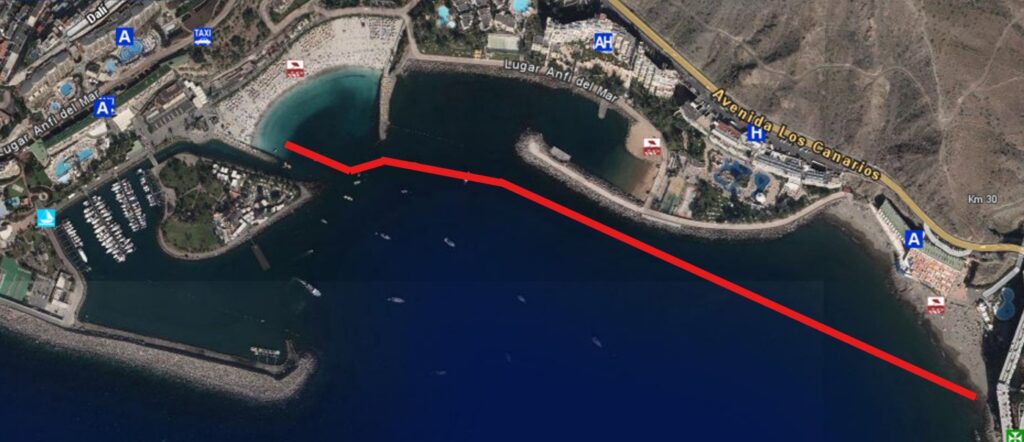Safe Zone from Anfi Beach
New safe zone between Anfi Beach and Patalavaca Recently the government, in collaboration with Anfi Del Mar, has created a new safe zone stretching from Anfi beach to Patalavaca. In the area only swimmers are allowed, no propulsion based boats can enter this zone. The protected area stretches for little over 2000 meters. The Safe […]
 For Scuba Sur, this savezone is great news! We do a lot of training dives from our beatiful white beach. The presence of boats and jetskis are a constant concern in order to organise these activities in a safe manner. Defenitely during the early stages uncontroled ascents can happen. The various surface skills that need practicing require extensive planning. The implementation of this safe area created a massive and completely safe extension of our working area.The area covers area's with a depth up to 12 meters.
For Scuba Sur, this savezone is great news! We do a lot of training dives from our beatiful white beach. The presence of boats and jetskis are a constant concern in order to organise these activities in a safe manner. Defenitely during the early stages uncontroled ascents can happen. The various surface skills that need practicing require extensive planning. The implementation of this safe area created a massive and completely safe extension of our working area.The area covers area's with a depth up to 12 meters.

